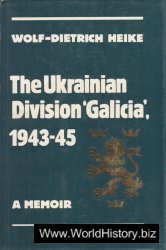Germany was the core of the Holy Roman Empire, whose seven electors voted to select the emperor (see Pages 20-21 for a list of their offices). These men also composed a permanent electoral body who formulated the conditions of rule for prospective emperors. Along with other rulers in Germany, the electors continually strove to assert their authority over that of the emperor. In effect, they maintained feudal power systems well into the Renaissance era. Emperor Charles V, also king of Spain, was drawn into conflict in Italy and elsewhere during the 1520s. With his attention diverted to these military campaigns, several German princes seized the opportunity to convert to Protestantism and to oppose Imperial power.
In Germany the Protestant Reformation and the powerful guild organizations contributed to the rise of popular governmental reform. Many German princes and dukes converted to the new religion to remain as head of state with a minimum of internal strife. Encompassing more than three hundred principalities and cities that had separate secular or ecclesiastical rulers and no centralized control, Germany was particularly vulnerable to a reform movement such as Protestantism. Except for the emperor, there was no centralized power that could move swiftly to stifle protest, and the emperor often had responsibilities in other parts of the continent. Although towns answered to their territorial ruler, a few cities became independent enough to answer only to the emperor. Imperial knights, members of the nobility, also answered only to the emperor. The fate of Germany was historically linked with that of the Holy Roman Empire because the emperor was chosen by German electors and also served as the king of Germany. Maximilian I (1459-1519) helped modernize the legal system by establishing the Aulic Council (Reichshofrat) and the Imperial Court of Chancery (Reichskammergericht), whose jurisdiction sometimes overlapped. The Aulic Council judged cases pertaining to criminal charges involving Imperial subjects and issues concerning succession in the fiefdoms, and the Court of Chancery heard most other lawsuits. Maximilian began to centralize the governing of his Imperial dominions, including Austria, but Germany remained a disparate group of principalities and imperial cities. In spite of the various reform movements, most of Germany was governed by feudal law; the Hohenzollern family in Brandenburg and the Wittelsbach family in the Palatinate were particularly powerful.
The weakness of each principality chiefly lay in the relatively small size of each territory, as many cities had no control of the population beyond their city walls. Living conditions of the peasant class deteriorated during the 15th century, with rising prices and princes’ demands for increasing sums in taxes and tribute. Local leaders had no interest in national politics, only in their own aggrandizement.




 World History
World History









